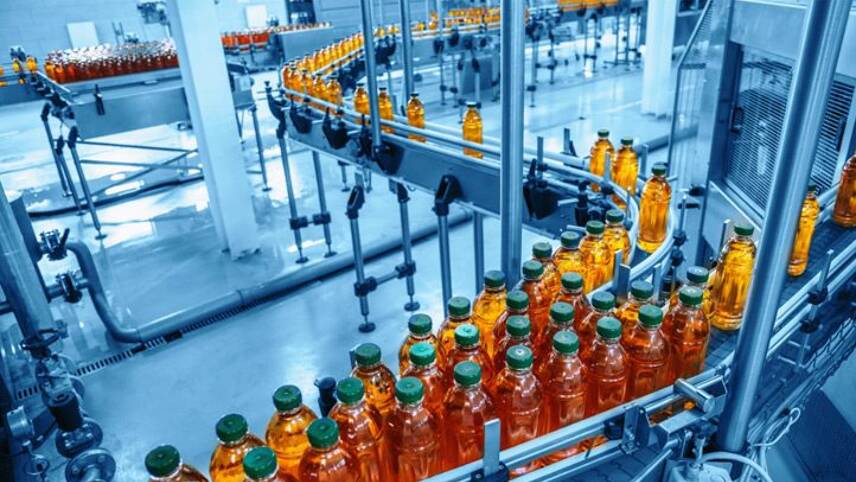Register for free and continue reading
Join our growing army of changemakers and get unlimited access to our premium content

That is according to the latest research from the Food and Drink Federation (FDF), which represents more than 300 companies across the national sector. This headline prediction factors in the fact that the sector, one of the nation’s largest employers, is currently growing at about 1% annually.
The report notes that Scope 2 (power-related) emissions account for the majority of the sector’s carbon footprint, with 97% of its direct footprint attributable to natural gas and the majority of the remaining 3% accounted for by electricity. Of the natural gas sourced by the sector between 2012 and 2020, 80% was used in boilers and direct-fired ovens.
While the bulk of these issues will be tackled by the decarbonization of the UK’s electricity and gas networks, provided that policy and business action proceeds as forecasted, the FDF is warning that key barriers remain to abate the remaining emissions in line with the UK’s long-term climate targets and in a cost-effective manner.
The UK Government has notably already developed a decarbonization and energy efficiency roadmap for the food and drink manufacturing sector, outlining time-bound actions to be taken in regards to heat electrification, biomass, heat recovery and heat recovery. However, as the roadmap was published in 2015, it is aligned with the nation’s previous climate target of an 80% reduction in net emissions by 2050, against a 1990 baseline.
Moreover, the UK Government has not yet begun work to develop a low-carbon heat strategy, despite the Committee on Climate Change’s (CCC) recommendation that such a framework should be launched by 2021 at the latest. It has, however, outlined its intentions to replace the Renewable Heat Incentive (RHI) with a new Clean Heat Grant for businesses and households.
Policy refresh
In the coming decade, the FDF believes its members will deal with a lack of confidence and expertise regarding the electrification of key technologies, alongside uncertainty about future energy sources due to concerns around investment and energy security
Challenges surrounding the availability of renewable energy sources and the costs of emerging technologies will also be present and are likely to persist in decades to come, the FDF has warned.
The body’s report makes several key recommendations for overcoming these barriers, aside from updating the 2015 roadmap and developing more accurate forecasts and strategies concerning the decarbonization of the natural gas sector.
It calls for ministers to introduce an interim 2025 climate target, separate from existing carbon budgets, and to collaborate with the food and drink industry to design a financial support scheme for decarbonization. Such a scheme would support businesses seeking to invest in emerging technologies.
Also recommended is the establishment of an industry taskforce, comprising not only food and drink manufacturers but also appliance manufacturers and solutions providers. This could enable knowledge-sharing, helping to overcome barriers relating to skills, confidence and buy-in, the FDF claims.
Additional partnerships focusing more specifically on local area challenges to decarbonizing electricity and gas networks should also be forged, the FDF states. Such ‘Local Enterprise Partnerships’ could bring together all key stakeholders, including local authorities, community groups and utilities as well as end-user businesses of all sectors.
The FDF’s recommendations were developed in collaboration with SLR consulting and build on its previous call for stronger and clearer policies around long-term decarbonisation, climate resilience and resource efficiency, issued shortly after the net-zero target was enshrined in law.
“In producing this report, we have identified a clear pathway to net-zero and the challenges we will need to overcome in order to meet that target,” the FDF’s head of energy and climate change Emma Piercy said. “But we can’t do it alone. Businesses will need clear direction and support to make that transition.”
Piercy added that the sector is “absolutely committed to a green recovery post-Covid-19”. Indeed, many of the largest players in this space, including Nestle UK & Ireland, Asda and Coca-Cola European Partners have joined joint calls for the Government to embed new green investment and policies in its recovery and resilience plans.
Prime Minister Boris Johnson is expected to unveil the UK’s economic recovery plans in full in the latter half of June. edie recently rounded up the measures that are reportedly included.
Mission Possible: Achieving a net-zero carbon future for food and drink manufacturing
As part of Mission Possible, edie’s award-winning campaign which empowers organisations to ramp up areas across all areas of sustainable development, edie is hosting an insight report exploring ow food and drink manufacturers are driving forwards towards net-zero across their own operations and the supply chain.
You can access this downloadable 16-page report, produced in association with Centrica Business Solutions, by clicking here.
Sarah George


Please login or Register to leave a comment.